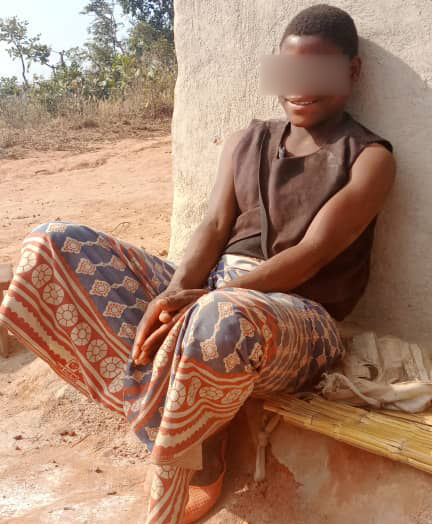Revamped Protection Structures Fight Soaring Child Marriages Amid Covid-19

14-year-old Bridget* is first born in a family of five. She comes from Nkhatabay District, Northern Malawi. Bridget and her siblings leave with their grandmother.
Parents divorced, remarried and left the children in the care of their maternal grandmother.
Before Covid-19 stuck, Bridget was a dedicated grade five learner at Makumbo Primary School.
In the course of school closure due the pandemic, Bridget spent more time with an aunt who later enticed her into a relationship with a man. Bridget started accepting money and other gifts from the man and she shared these with her Aunt.
The Aunt went on and arranged Bridget’s marriage with the 27-year-old-man.
In Nkhata Bay District, issues of child marriages are complex and deeply entrenched in poor social economic factors and widespread gender inequalities which manifest
themselves in various ways.
With COVID-19, the statistics for child marriage in the district have become alarming.
“In 2019, we registered 54 cases of child marriage and 22 cases of teen pregnancies. In 2020, however, as of August, we have registered 188 cases of child marriage and
88 cases of teen pregnancies. COVID-19 has a bearing on this. The figures have tripled by August. There could be more by December,” says Prisca Zimba, Nkhatabay District Social Welfare Officer.
It is against such background that Save the Children, with financial support from the EU through UNICEF, embarked on a project aimed at strengthening Community Victim Support Units (CVSUs) and local child protection systems to prevent and respond to child abuse, neglect, violence and exploitation to eliminate gender-based
violence in the targeted areas of Spotlight Initiative Project.
One of the success stories from this initiative is that of Bridget.
When Bridget’s mother returned two weeks later and found her daughter missing. She took up the issue with her brother who told her that he had heard about akumbo CVSU – a structure revamped under the Spotlight Initiative and now more popular in the area.
At the CVSU, child protection workers initiated a search for the missing girl until they located her and withdrew her from the marriage and arranged referrals to the hospital and Police.
Bridget says she only accepted to get into the marriage because she thought she would be getting money to support her grandmother. She explained that although she was unhappy, she could not quit the marriage because she was afraid of her aunt.
“If I had not been withdrawn from the marriage, I could have had a doomed future as I could have dropped out of school.
“But am now happy to have returned to school as we have reopened and this has kept dream of becoming a nurse alive,” says Bridget.
Bridget says the physio-social support from the child protection worker made her realise that child marriages are harmful and not acceptable.
Prisca Zimba, Nkhatabay District Social Welfare Officer sums up achievements of the Spotlight Initiative:
“With support from Save the Children, we have revamped the CVSUs and they are more more vibrant. We have raised awareness about CVSUs and about abuses and he need to report the same.
“So far, we have rescued 41 under aged girls from marriages and with support from Save the Children we have provided psychosocial support. We will ensure all girls are withdrawn from these marriages, and we will help them return to school”, she says.
Under the project, Save the Children has revamped and oriented 50 CVSUs across the six districts of Mzimba, Nkhatabay, Ntchisi, Dowa,
Machinga and Nsanje.
“We conducted rapid CVSU orientations during the 1st tranche period (January-June, 2020), in order to rapidly prepare the CVSUs to respond to COVID-19. These CVSUs have played a pivotal role in providing essential protection services to survivors of gender based violence and child abuse.
“A total of 4,578 survivors have received services at CVSUs across the six districts. Of these 48 percent were children and 33 percent were women. Teenage pregnancy and child marriage is the highest form of violence constituting 27 percent, seconded by negligence at 9 percent. The revamped CVSUs have played critical role in withdrawing children from marriages, stopping potential child marriages and providing support to those affected.
“We are advocating with government and other institutions to ensure these girls are fully supported and we address underlying causes. We want to ensure that social protection services are more child sensitive and address the needs of these girls. We want to see girls benefiting from bursaries and that lack of fees should not be a pushing factor,” says Grevasio Chamatambe, Project Manager
*On safeguarding grounds, we have used a pseudonym
 Malawi
Malawi